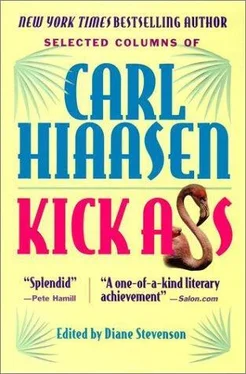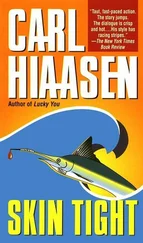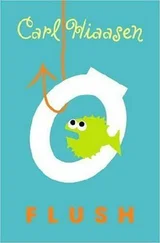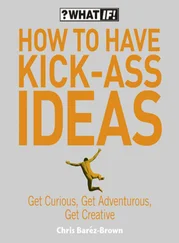As Miami commissioner, Alonso has done a few dumb things. After a German tourist was murdered, Alonso announced that she was jetting overseas to assure folks that Miami was a sane and normal place. Tourist officials urged her not to go, but the commissioner went anyway, an exceptionally stupid stunt. There is little evidence that the Germans were charmed.
4. Likelihood of indictment and/or arrest.
This category is crucial everywhere but Hialeah. In most cities, voters prefer that mayors not be busted for major felonies until their term of office is over. It's not just humiliating, it's costly—changing all the stationery from "Mayor's Office" to "Suspended Mayor's Office."
It's hard to say which Miami front-runner is most likely to get nabbed in office. As Metro mayor, Clark was secretly recorded during an FBI bribery probe and called to testify in Alcee Hastings' impeachment hearings. The entire U.S. Senate decided Clark's testimony was not credible, but he wasn't charged with a crime.
Alonso was equally lucky. She flat-out lied about where she lived in order to qualify for a Metro commission race. The law says you can't do that, but the State Attorney's Office let it slide.
Having survived close calls, both candidates are cautious. Neither is likely to get indicted for the first few months, at least.
There are other ways to embarrass the city, and either Clark or Alonso is eminently capable of breaking new ground. Who'd be worse? The choice is so repugnant that many voters yearn for alternatives.
Four other mayoral candidates do appear on Tuesday's ballot. None could bring more ridicule to Miami than the front-runners already have. It's not humanly possible.
Hialeah's new convict-mayor government
November 11, 1993
The good people of Hialeah have spoken. As incredible as it seems to the outside world, they want a convicted extortionist to be their mayor again.
Go ahead and laugh; Lawton Chiles isn't. The governor announced Wednesday that he won't attempt to suspend Raul Martinez for a second time.
For Chiles, it was a no-win situation. Yanking Martinez from office would have subverted the will of many Hialeah voters. Yet leaving him in City Hall gives the impression that Florida tolerates crooks in high places, particularly crooks with the same political affiliation as the governor. It's a messy dilemma.
Most normal cities would be deeply ashamed to have a felon as mayor, but on Tuesday, Hialeah declared—if by the slimmest of margins—that it is beyond shame.
So give the people what they want. Those 14,540 stalwarts who cast their ballots for Martinez surely gave thought to the consequences. Some obviously believe he is innocent, and some obviously don't care. Either way, they've decided that the advantages of having a convict-mayor outweigh the disadvantages.
By allowing Martinez to take office, Chiles establishes Hialeah as a unique sociopolitical experiment of the 19905—a sort of biosphere of sleaze. The rest of Florida can watch and learn.
What exactly is the mandate for an elected racketeer? Is he expected to continue extorting? If so, how much and from whom? Can he successfully bridge the ideological chasm between his criminal and noncriminal constituents? These questions are seldom confronted in American politics, and here's a rare opportunity to get them answered.
Because of its checkered history, Hialeah is a logical place to experiment with the convicted-mayor form of government. After 40 years of uninhibited corruption, the undeveloped land is mostly gone and, with it, the opportunities for easy graft.
The city is already an aesthetic ruin, one zoning atrocity stacked shoulder to shoulder against another. Even if Martinez went hog-wild, what difference would it really make? How much worse could it get?
In a sense, the Hialeah mayoral race was the purest test of democracy—the frank exercise of electoral choice in the face of civic pride, conscience and common sense. The people wanted a convicted crook, and they elected him.
Does government have a constitutional right to intervene? What would Thomas Jefferson say?
Voters sometimes do confounding things. Candidates who die on the campaign trail occasionally get elected anyway, but at least dead guys can't steal. The election of a shakedown artist is a riskier proposition.
Although Chiles is staying out of it for now, the Hialeah biosphere could be punctured by other forces. Martinez's conviction on six corruption charges is being appealed to the 11th U.S. Circuit Court of Appeals. If the verdict is upheld, the governor has no choice but to jerk Martinez from office.
That's the law. It was conceived on the premise that voters would never tolerate criminals in office and would demand their instant removal. In most places, that's true. Hialeah is a special case, though, and perhaps an exception should be made.
Certainly those who voted for Raul Martinez on Tuesday were aware that he might soon be sent away to serve his 10-year sentence. So deep is their loyalty that many Hialeans would like him to remain their mayor, regardless.
In fact, there's no reason why Raul couldn't take care of the city's business from a prison cell in Eglin or Talladega. All he'd need is a telephone and some privacy.
Heck, it works just fine for John Gotti.
Hialeah vote 2: This time hide the cheating
November 10, 1994
Across the land, weary voters groan in relief: Another insulting, infuriating campaign season finally ends.
Unless you happen to live in Hialeah.
Residents of Florida's crookedest city are gritting their teeth for an ugly new mayoral election. A judge threw out the old one after a trial confirmed "substantial"—how shall we say?—irregularities.
Mayor Raul Martinez won the 1993 contest by only 273 votes, a margin achieved by a timely but statistically improbable influx of absentee ballots.
To the shock of no one, it was revealed that scores of those ballots arrived with forged signatures, witnessed by some of the Democratic mayor's loyal supporters. Bunches of those votes were gathered in a sweep of convalescent homes for the mentally and emotionally disturbed.
Martinez, awaiting a new (and unrelated) trial for bribery, professed no involvement in any skullduggery. His defiant assertion brought giggles not only from cynical Hialeah citizens, but from the battalion of FBI agents assigned to keep track of corruption in the city.
While the feds added electoral fraud to their list of recent crimes, Dade Circuit Judge Sidney Shapiro this week ordered a new mayoral vote to be held within 30 days.
It's hard to steal an election on such short notice. Martinez's supporters will have their work cut out for them. Here are a few tips to avoid another fiasco:
• Don't cut it so close.
If you're taking all the trouble to rig a vote, do it convincingly. Arrange a victory margin wide enough that the result won't hinge on validating a paltry 200-odd ballots. Why make the FBI's job any easier?
• Get better forgers.
The forgery techniques used on many ballots were so bad that even the city's own hired handwriting expert had to admit the signatures looked phony.
Microscopic examination revealed that some of the names had been penned in erasable ink, and even showed signs of erasure smudges. There's no excuse for such sloppiness.
Hasn't anyone in Hialeah heard of tracing paper?
• Get better witnesses.
When bogus absentee ballots are being prepared, it's important to maintain at least the appearance of objectivity. That's tough when many of those "witnessing" the signatures are the mayor's cronies, campaign workers or—in 13 instances—the sister of his own wife.
Another unfortunate choice was Hialeah policeman Glenn Rice, a Martinez campaign volunteer who signed 20 absentee ballots as a witness. When questioned under oath about forgeries, officer Rice crawled safely behind the Fifth Amendment and shut up.
Читать дальше









